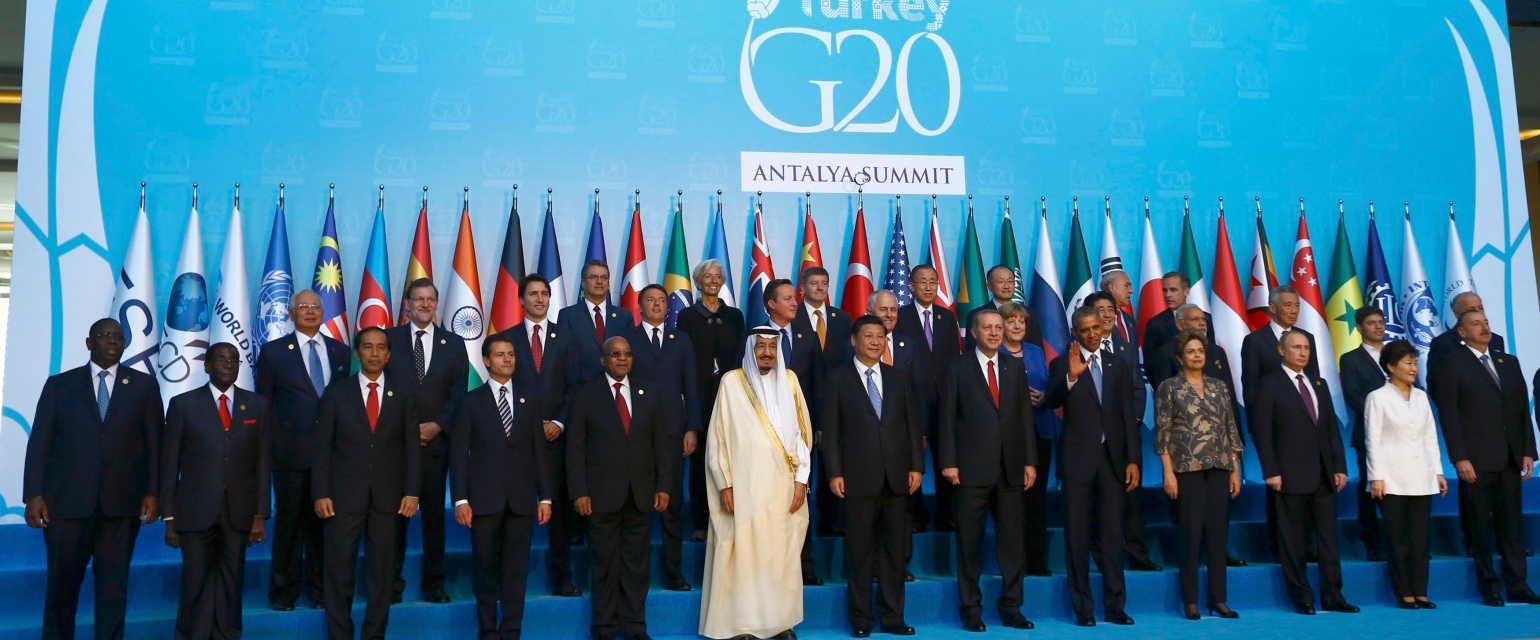

The G20 Summit in Turkey, intensification of Russian airstrikes in Syria and a glimmer of hope for an improvement in relations between Russia and the West all made headlines.
Last week was devoted to the G20 Summit in Turkey, mourning for the victims of the terror attacks in France and Egypt, and the search for a joint approach to fighting international terrorism. Despite the clear commonality of the global terrorism problem and the prospects for a joint solution, each of the great powers continues to play its own game.
Results from the G20 Summit in Turkey
On Nov. 15-16 the Turkish city of Antalya turned into the center of world politics as it played host to the G20 Summit. Although the G20 was initially an economic platform, with politics supposedly the preserve of the G8, the latter’s reversion to the G7 format means that it lacks some of its former authority to take legitimate political decisions on a global scale. So the burden has now passed to the G20.
In the wake of the recent attacks in Cairo, Beirut and Paris and the explosion on board the Russian airliner, the main topic of the forum in Antalya was international terrorism. All eyes were on Russian president Vladimir Putin, who is leading the fight.
U.S. newspaper The Wall Street Journal, which can hardly be accused of being a Kremlin sympathizer, noted that the Russian leader was “front and central throughout the whole summit in Turkey.” Taking advantage of his privileged position, Putin reiterated his previous call in September at the UN General Assembly for the world to join forces in the fight against the absolute evil that is terrorism.
“The terror attacks in Paris make it absolutely imperative for everyone to put aside all excuses, pretexts and preconditions and focus on creating a truly universal anti-terror front,” Russian Foreign Minister Sergey Lavrov said, explaining the Kremlin’s position. But Moscow’s call was not heeded, as Brussels is not prepared either to trust Moscow or to give up dividing terrorists into “good ones” and “bad ones.”
Russia needs its own Operation Wrath of God
On Nov. 20, FSB head Alexander Bortnikov officially stated that the Russian Airbus A321 had been brought down by an on board bomb. Vladimir Putin immediately vowed that all those implicated would be found and destroyed.
The Russian Defense Ministry has been instructed to intensify its operation in Syria. The number of anti-terror sorties has doubled, and terrorist positions near Raqqa have been hit with cruise missiles. It is also possible that the Russian Air Force will strike the militant group known as Wilayat Sinai (which has claimed responsibility for the bombing of the plane), following public consultations with the Egyptian authorities and private consultations with Israel.
Continue reading at Russia Direc
My observations in Washington prove that this is not an immediate objective for the US yet. However, it does not mean, that the Americans will refrain from an opportunity to speed up the fall of the Russian regime if the internal problems cause a social upheaval. Having met with the White House, National Security Council and Pentagon officials, as well as experts on Russia in Washington, I may conclude that the US has certain difficulties formulating a single consistent policy towards Moscow and is, therefore, incapable of conspiring against it.
Russia's increased military involvement in the Syrian crisis and the much anticipated meeting between Barack Obama and Vladimir Putin on the sidelines of the UN General Assembly in New York grabbed most of the headlines in September.
One thing has become clear: the ‘Crimean question’ has at least two dimensions – the international and the internal. The ‘return to its home haven’ has not solved any of Crimea’s many problems; on the contrary, Russia’s leadership now faces an urgent need to find an adequate solution to them.
The US House of Representatives and Senate overwhelmingly adopted a Russia, Iran and North Korea sanctions bill. It predictably provoked a harsh response from Russian officials. The head of the Federation Council’s Foreign Affairs Committee, Konstantin Kosachev, called for a response that would be painful for Americans. Deputy Foreign Minister Sergei Ryabkov said that Washington is “a source of threat.”